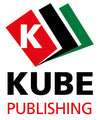- ISBN13: 9781847742346
- Publication Date: 15-10-2024
- Format: Paperback
A crucial component of the book deals with approaches to the variant readings of the Qur’ān, understood as being sanctioned through narrations on the aḥruf. It explores fresh insights into how Muslim scholars theorised such variances and the way they related them to the qira’āt, including how they approached the variant codices of prominent companions. Furthermore, this work explores understudied non-Qur’ānic transmissions of the Qur’ān alongside the historical development of Qur’ān translations. This volume advances the field of Qur’ānic studies and Qur’ānic history.
The book features contributions from F. Redhwan Karim, François Déroche, Éléonore Cellard, Yousry Elseadawy, Nazir Khan, Ammar Khatib, M.A.S Abdel Haleem, Zahed Fettah, Yasir Qadhi, Khairil Husaini Bin Jamil, Stephen Cúrto, Meysam Kohantorabi and Afsan Redwan.
Author Bio
Reviews
"Redhwan Karim's edited volume is a timely and significant contribution to the dynamic and rapidly advancing field of the history of the Qur'an, offering cutting-edge research particularly on the oral and textual transmissions of the Qur'an."
Muhammad Husain Kazi, Cambridge Muslim College
Muhammad Husain Kazi, Cambridge Muslim College












